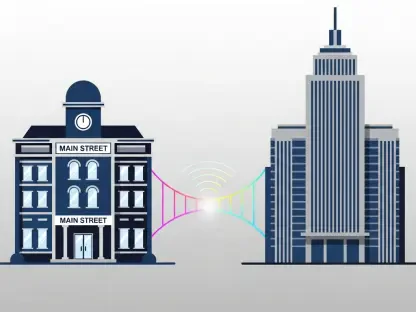A significant legal battle culminated in a notable decision by the Nevada Supreme Court, addressing a protracted dispute between UnitedHealthcare and TeamHealth concerning out-of-network reimbursement practices. The genesis of this conflict can be traced back to the expiration of a contractual agreement in mid-2017. Despite the lapse of formal ties, TeamHealth proceeded to extend emergency healthcare services to clients affiliated with UnitedHealthcare across Nevada-based medical facilities, submitting in excess of 75,000 claims in the process. Among these, a staggering 11,500 claims became focal points of contention, as TeamHealth alleged remuneration of merely $2.84 million against a calculated $13.24 million in charged fees.
Financial Dispute and Court Intervention
The Jury’s Decision and Subsequent Appeal
In 2022, TeamHealth found initial vindication when a jury rendered a decision in its favor. This judgment translated into $2.65 million awarded in compensatory damages, supplemented by a hefty $60 million in punitive damages. Such measures were compounded by additional financial obligations stemming from penalties and legal fees under Nevada’s Prompt Pay Act and Unfair Claims Practices Act. Yet, this decision was far from final; UnitedHealthcare opted to initiate an appeal process, challenging both the financial implications and the foundational rationale of the ruling.
Nevada Supreme Court’s Ruling
The Nevada Supreme Court delivered a nuanced judgment, affirming that UnitedHealthcare had indeed gleaned financial advantage from TeamHealth’s services without equitably compensating for them. Critical to the court’s decision was TeamHealth’s strategic choice to refrain from balance billing patients, effectively sparing them from potential ancillary costs. However, the court made a pivotal determination to recalibrate the original judgment by eliminating statutory claims. This decision rested on the interpretation that Nevada’s insurance statutes did not provide TeamHealth with a private right to pursue litigation. Additionally, the court negated the existence of an implied contract between the entities, attributing this to unsuccessful negotiations that marked their interactions.
Implications for Insurers and Emergency Care Providers
A Revised Understanding of Out-of-Network Disputes
While the verdict underscored that punitive damages were warranted, the $60 million initially awarded was deemed disproportionate, and the Supreme Court mandated a reduction to align more closely with compensatory damages. In a further twist, the court dismissed UnitedHealthcare’s bid to suppress certain trial documents, underscoring that the insurer had forfeited its opportunity for objection during the legal proceedings. This decision holds substantial ramifications, notably framing the discourse on how out-of-network engagements in emergency situations can evolve absent definitive contractual guidelines.
Lessons and Future Considerations
This case serves as a stark reminder for insurers about the complexities and potential repercussions when out-of-contract services are mishandled. It accentuates the necessity for transparent communication and meticulous documentation in managing out-of-network payments. Such judicial outcomes instigate a broader reflection on the standards by which entities execute agreements, presenting an opportunity for the industry to reassess practices to prevent similar conflicts in the future. This ruling amplifies the importance of establishing clear payment protocols and maintaining detailed records when navigating instances outside formal contracts.
The Evolving Landscape of Healthcare Payments
A Shift Towards Clarity and Compliance
The Nevada Supreme Court’s decision is poised to influence how insurers and healthcare providers approach out-of-network service claims. It illuminates potential legal vulnerabilities stemming from unregulated negotiations and uncovers systemic gaps that can lead to disputes. Insurers might need to rethink their strategies relating to reimbursement structures and adopt more cohesive approaches that safeguard against litigation risks while promoting fairness and clarity in healthcare reimbursement dialogues. Ensuring ethical standards in financial dealings with healthcare providers becomes crucial.
Ensuring Ethical Standards in Healthcare
The Nevada Supreme Court recently rendered a pivotal decision in a long-standing legal dispute between UnitedHealthcare and TeamHealth over out-of-network reimbursement policies. This conflict originated when their contract ended in mid-2017. Despite the lack of a formal agreement, TeamHealth continued to provide emergency medical services to individuals covered by UnitedHealthcare at various Nevada medical centers, resulting in the submission of over 75,000 claims. Of these claims, 11,500 became central to the disagreement, with TeamHealth asserting that they received payment of only $2.84 million, a stark contrast to the $13.24 million they calculated in charges. This disparity highlighted concerns over fair compensation and billing practices in out-of-network services, emphasizing the need for clarity in healthcare reimbursements. The resolution of this case sets a precedent for addressing similar healthcare disputes and reinforces the ongoing dialogue about equitable healthcare provider compensation within the insurance landscape.









